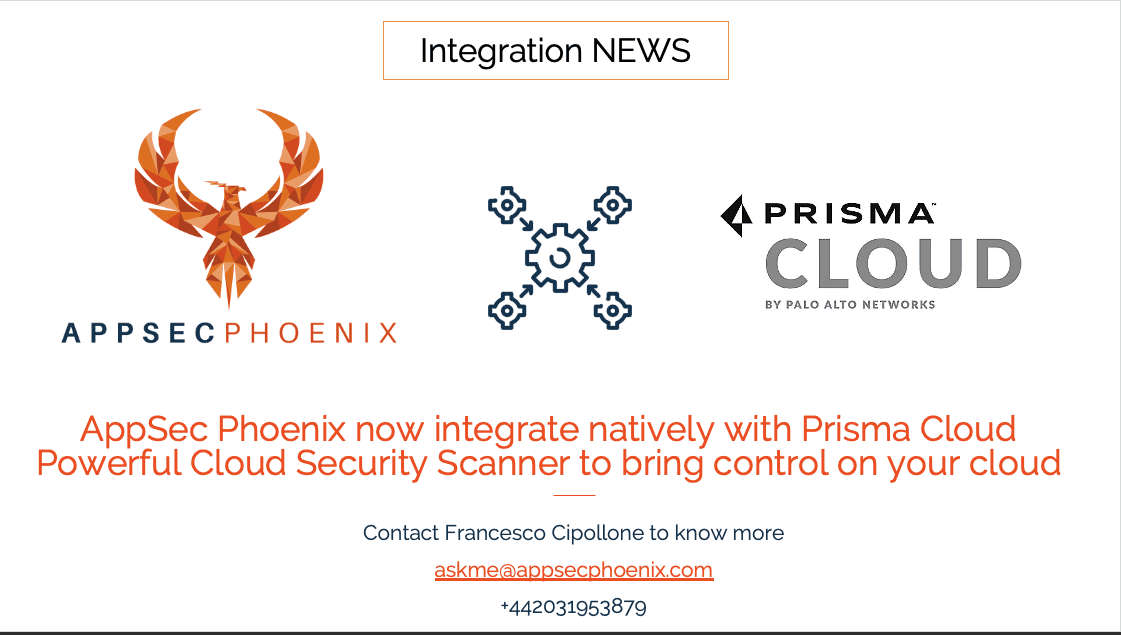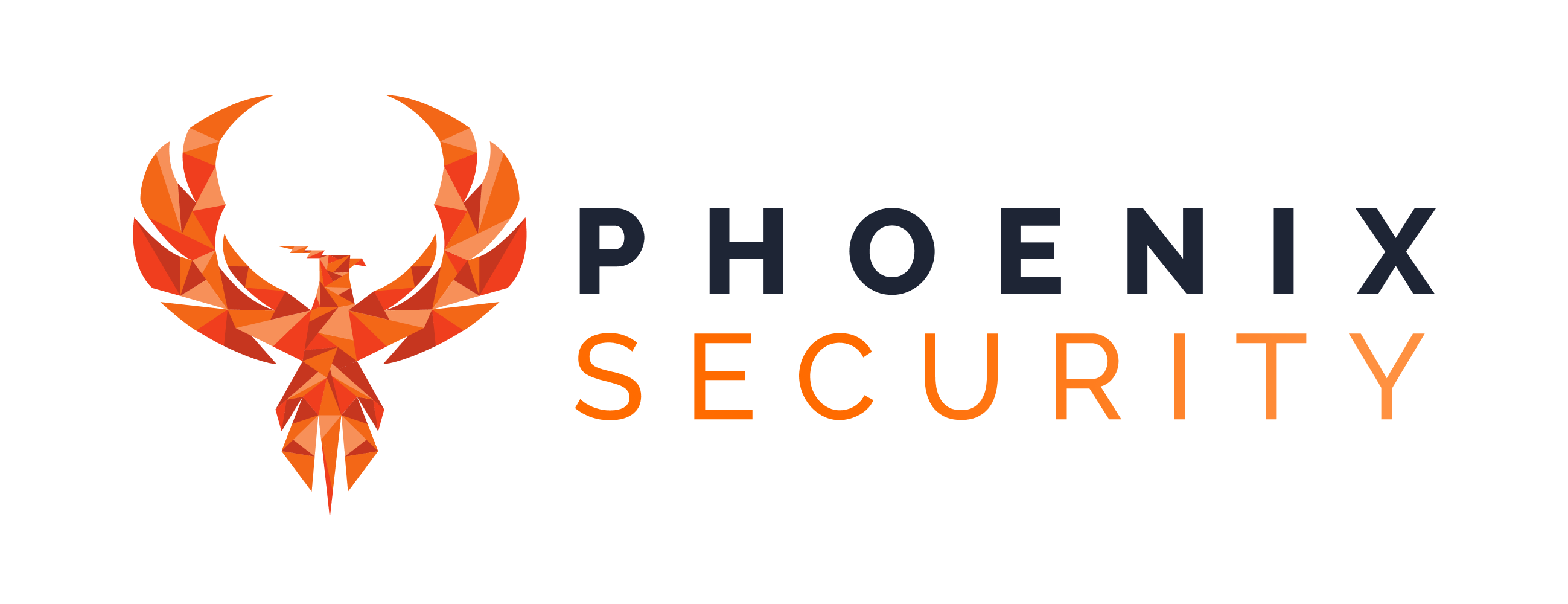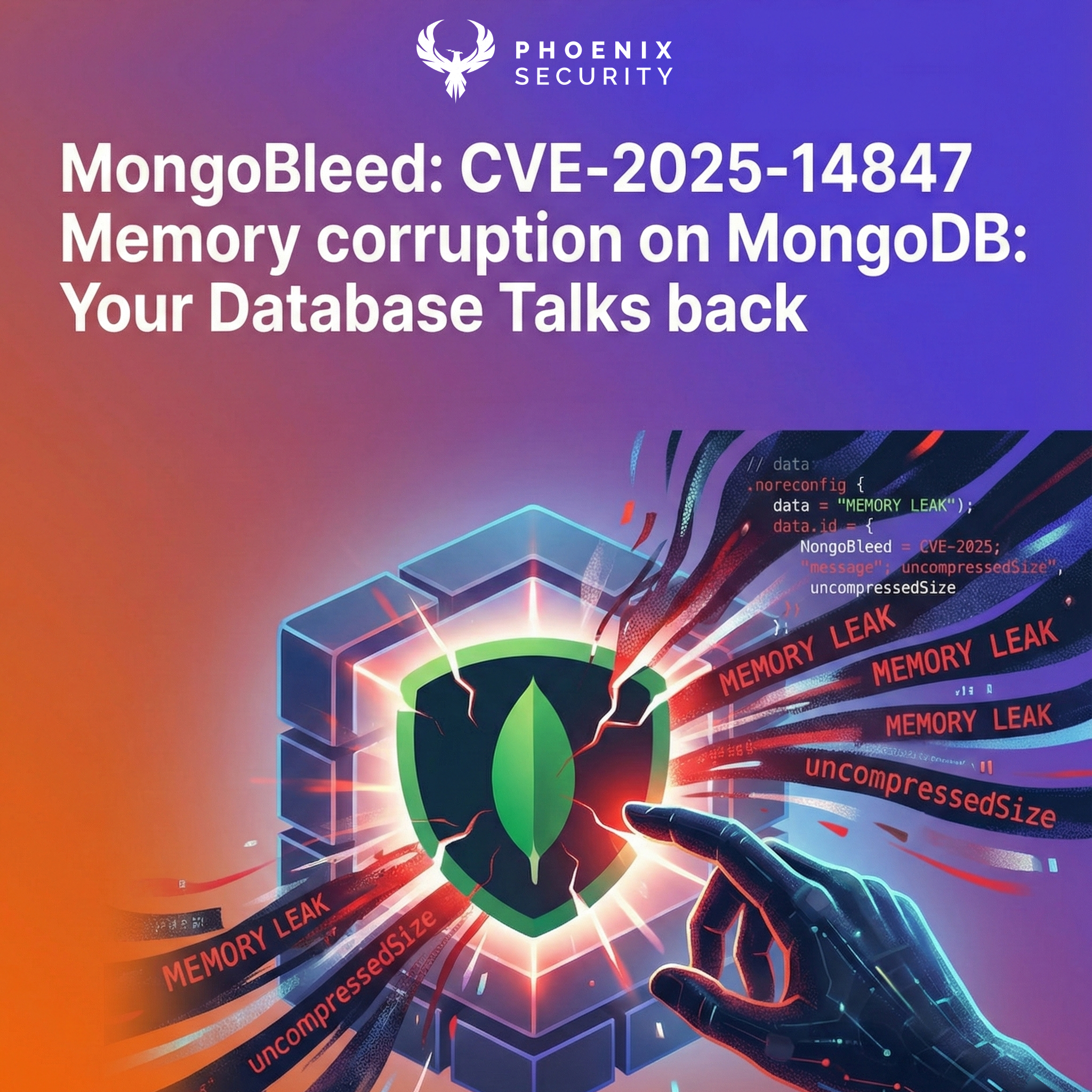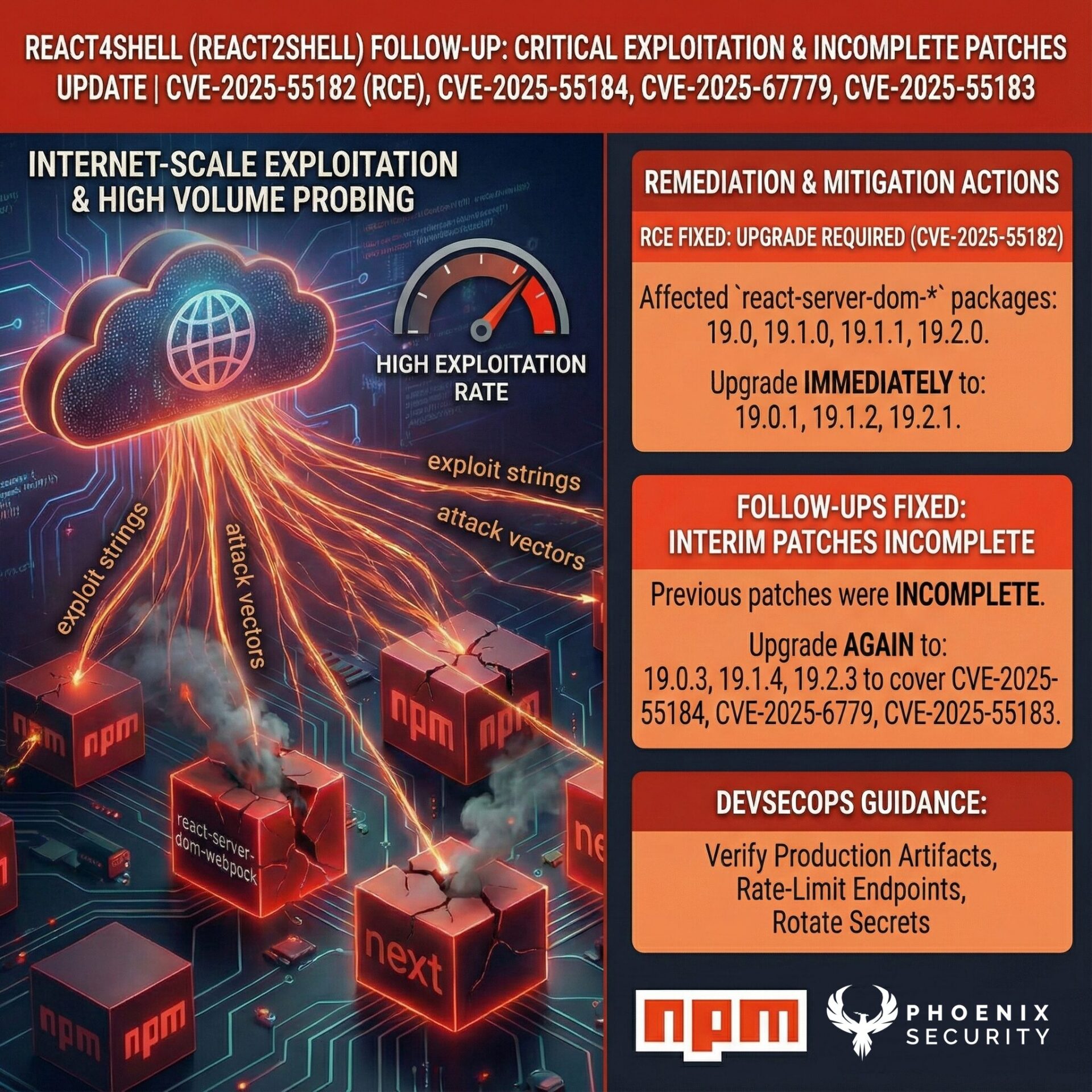The vulnerability management application offers native integration with Prisma Cloud to deliver a single dashboard to track and prioritise risks

LONDON, England (September 28, 2021)—AppSec Phoenix, an innovative risk-based vulnerability management software, is pleased to announce its collaboration with Prisma Cloud, the world’s leading comprehensive cloud-native security platform. The native integration capabilities of the two platforms deliver an enhanced security and risk management experience that provides users with a robust one-stop shop for detecting and resolving threats without a scanner.
AppSec Phoenix was founded by Francesco Cipollone, a recognisable name in the world’s cybersecurity circles. Cipollone has been honoured with numerous industry awards and is an industry innovator, thought leader, and entrepreneur who has founded several cybersecurity start-ups. Throughout his career, Cipollone has overseen security programming for some of the world’s most notable brands, including Amazon AWS, HSBC, and other financial organisations.
In creating AppSec Phoenix, Cipollone’s mission was to simplify smart security and risk-based vulnerability management for small- to medium-sized enterprises. In building the platform, Cipollone and his team had to get into the minds of cybercriminals to predict which vulnerabilities they are most likely to exploit. Armed with this information, the team then created the platform to scan for these areas most likely to be targeted and alert users to any vulnerabilities so they can quickly fix them. This approach saves AppSec Phoenix’s partners time and money by giving them a quick and easy way to identify risks and solve them before breaches occur.
AppSec Phoenix seamlessly integrates with many of today’s cloud service and security providers, including Prisma Cloud. In under 10 minutes, AppSec Phoenix can be integrated with Prisma Cloud to import cloud vulnerabilities, prioritise them, and set a target for the team to fix them accordingly. The native integration offers a simplified security solution at organisations’ fingertips, giving them an easy-to-use security hub that allows them to monitor the progression of compliance and resolution protocols.
When integrated with Prisma Cloud, AppSec Phoenix distills complex cyber exposures into a comprehensive dashboard that tracks vulnerabilities and displays risk metrics, impact insights, and more.
“We are delighted to partner up with such a prestigious cloud security provider like Palo Alto and Prisma Cloud,” said Cipollone. “The collaboration with Prisma Cloud enables the integration of cloud and software vulnerability tracking into a single screen view that offers more seamless compliance and risk identification. It’s a modern solution for organisations looking for innovative cloud security and software security options.”
AppSec Phoenix offers a 50% discount on services to early adopters, limited to the first ten organisations that register.
To schedule a free demo of AppSec Phoenix’s capabilities, visit https://www.phoenix.security/request-a-demo/.
About AppSec Phoenix
AppSec Phoenix was established to provide an effective all-in-one security solution for application developers and businesses. With our easy-use platform, we’ve simplified a notoriously complex problem faced by many companies, small and large, working in the finance field and beyond. Learn more by visiting https://www.phoenix.security/.















